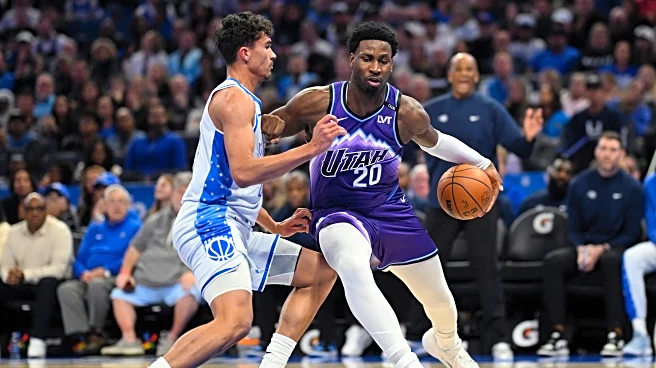What's Happening?
Jimmy Kimmel returned to late-night television after a brief suspension, addressing the controversy surrounding his comments about the killing of conservative activist Charlie Kirk. In an emotional monologue, Kimmel criticized "anti-American" threats to free speech and defended his remarks, stating that it was never his intention to make light of Kirk's murder. He accused the head of the Federal Communications Commission (FCC) of using "mob tactics" to suppress free speech and criticized President Trump's reaction to the controversy.
Why It's Important?
Kimmel's return highlights the ongoing debate over free speech in media, particularly in the context of political influence. The incident underscores the tension between media personalities and political figures, as well as the broader societal implications of censorship. Kimmel's defense of his comments reflects the importance of protecting creative freedom in the face of political pressure, and the controversy may have lasting effects on how media companies navigate political sensitivities.
What's Next?
The controversy may lead to increased scrutiny of late-night television content, with networks potentially reevaluating their approach to controversial topics. Kimmel's return could also prompt discussions within the entertainment industry about the balance between creative expression and political sensitivity, influencing future programming decisions.
Beyond the Headlines
The situation raises ethical questions about the responsibility of media figures in shaping public opinion and the potential consequences of their statements. It also highlights the cultural impact of late-night television as a platform for political commentary and social critique.











